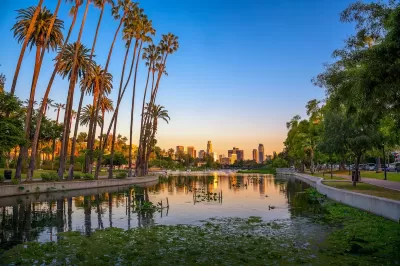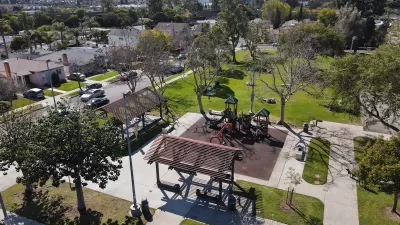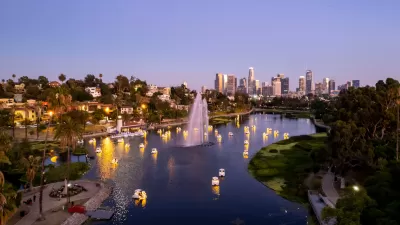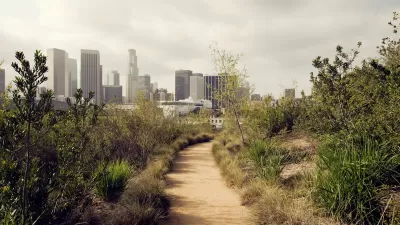Los Angeles is launching a citywide park needs assessment to gather resident input on improving its park system, addressing inequities in access, and making the case for increased funding and long-term investments.

Los Angeles is launching a citywide effort to engage residents in shaping the future of its parks, as the city grapples with declining park quality and inequities in access. According to the Trust for Public Land’s national "ParkScore" rankings, Los Angeles is currently 88th out of 100 major cities, reflecting decades of underinvestment and disparities in park access. Nearly 40% of Angelenos lack a park within walking distance, with low-income communities of color disproportionately affected. Meanwhile, the city faces a $2.1 billion backlog in deferred maintenance, staff shortages, and the expiration of a key funding source next year. In response, the Department of Recreation and Parks is conducting a comprehensive park needs assessment to gather public input and advocate for renewed investment in green spaces.
Beginning next month, the city will hold multilingual meetings, workshops, and hands-on activities in diverse neighborhoods to better understand residents’ concerns and priorities. A multilingual website and citywide survey will allow Angelenos to provide feedback on issues such as safety, accessibility, and park conditions. Advocates hope this data-driven approach will build a stronger case for increased funding, ensuring that parks remain an essential part of the city’s infrastructure rather than a secondary priority. With advanced mapping and analysis, officials plan to use community insights to guide long-term investments, prioritizing areas with the greatest need.
Supporters of the initiative emphasize that parks are more than just recreational spaces — they are vital community assets that promote public health, social connection, and climate resilience. “With a dramatic increase in how many hot days exist in L.A., parks with tree canopies can act as cooling centers in neighborhoods,” said Guillermo Rodriguez of the Trust for Public Land. Jon Christensen, a UCLA professor and consultant on the project, believes this effort will set a national standard for park planning, ensuring that investments lead to tangible improvements for all residents. “It will set the stage for improving and expanding our park system across the city,” he said, “prioritizing areas of highest need and focusing park funding to achieve visible, tangible results.”
FULL STORY: Los Angeles Asks Residents to Help Plan the Future of City’s Parks

Manufactured Crisis: Losing the Nation’s Largest Source of Unsubsidized Affordable Housing
Manufactured housing communities have long been an affordable housing option for millions of people living in the U.S., but that affordability is disappearing rapidly. How did we get here?

Americans May Be Stuck — But Why?
Americans are moving a lot less than they once did, and that is a problem. While Yoni Applebaum, in his highly-publicized article Stuck, gets the reasons badly wrong, it's still important to ask: why are we moving so much less than before?

Using Old Oil and Gas Wells for Green Energy Storage
Penn State researchers have found that repurposing abandoned oil and gas wells for geothermal-assisted compressed-air energy storage can boost efficiency, reduce environmental risks, and support clean energy and job transitions.

Greening Oakland’s School Grounds
With help from community partners like the Trust for Public Land, Oakland Unified School District is turning barren, asphalt-covered schoolyards into vibrant, green spaces that support outdoor learning, play, and student well-being.

California Governor Suspends CEQA Reviews for Utilities in Fire Areas
Utility restoration efforts in areas affected by the January wildfires in Los Angeles will be exempt from environmental regulations to speed up the rebuilding of essential infrastructure.

Native American Communities Prepare to Lead on Environmental Stewardship
In the face of federal threats to public lands and conservation efforts, indigenous groups continue to model nature-centered conservation efforts.
Urban Design for Planners 1: Software Tools
This six-course series explores essential urban design concepts using open source software and equips planners with the tools they need to participate fully in the urban design process.
Planning for Universal Design
Learn the tools for implementing Universal Design in planning regulations.
Heyer Gruel & Associates PA
City of Moreno Valley
Institute for Housing and Urban Development Studies (IHS)
City of Grandview
Harvard GSD Executive Education
Salt Lake City
NYU Wagner Graduate School of Public Service
City of Cambridge, Maryland





























